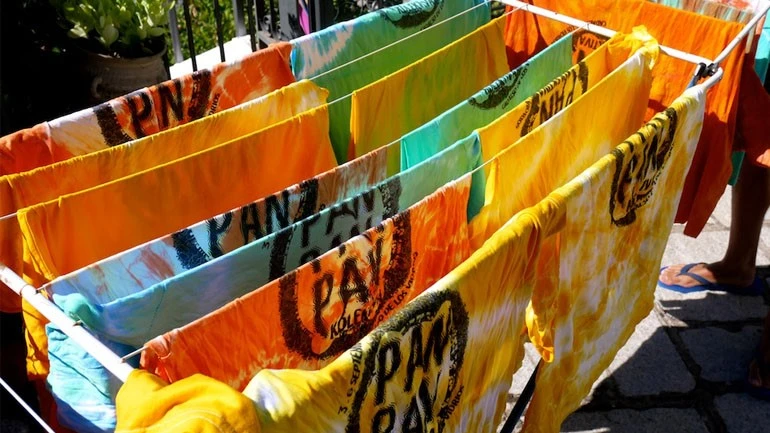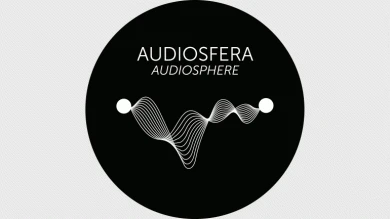
Held on 23 Jan 2021
Pan-Pan Kolektiva was formed in March 2020 as a listening-centred research group, with PAN PAN a standard urgency signal standing for Pay Attention Now, but not as urgent as MAYDAY. After the global health and social emergency caused by COVID-19 society is not necessarily at an endpoint, yet it does require our attention. The crisis has been compounded by uncertainty stemming from already unstable employment and personal situations and we have witnessed the rise of individualism, solitude and isolation, which could lead to psychological imbalances.
Over these months, Pan-Pan Kolektiva has focused its interests on analysing, through listening, the effects of these crises, observing how the social fragmentation mentioned above has triggered the simultaneous and oddly related rise of totalitarian ideologies with the ascent of New Age or anti-mask movements that harbour conspiracy theories — generally speaking, what has been termed “conspiritualism”.
Pan-Pan Kolektiva sets out from the hypothesis that the current situation is giving rise to collective trauma and from the following question: Do we have the necessary tools to listen to each other or do we need to create new ones?
Pan-Pan Kolektiva takes this question to form the basis of its work around the concept of “post-traumatic listening”, a mode of listening that is yet to be defined or settled upon, and that relegates our position as an individual subject to collectivise malaise and experiences of mourning. Therefore, the collective has contacted a series of artists, thinkers and cultural agents and asked them to produce a series of tools they will present publicly at this event.
Moreover, the encounter features different listening exercises conducted by Víctor Aguado Machuca, Elisa Arteta, José Begega, José Luis Espejo, the Grupal Crew Collective (GCC), Susana Jiménez Carmona, Mattin, Violeta Mayoral, Agnès Pe, Miguel Prado and Arnau Sala.
Curated by
Pan-Pan Kolektiva
Organised by
Museo Reina Sofía
Additional Material
Pan Pan Kolektiva. Post-traumatic Listening. Disclaimer, 2020
Participants
Víctor Aguado Machuca is an artist, architect, musician and curator. He is president of the Electroacoustic Music Association of Spain (AMEE) and a researcher in Philosophy and Language Sciences at the Autonomous University of Madrid. He has curated exhibitions in institutions such as the Ibero-American Institute of Finland (Madrid), Medialab-Prado (Madrid), the Cervantes Institute in Berlin and New York, The Graduate Center, CUNY (New York) and Oolite Arts (Miami).
Elisa Arteta is a dancer and choreographer with an MA in Contemporary Technological and Performance Art from University of the Basque Country and an MA in Performing Arts and Visual Culture from University of Castilla-La Mancha and Museo Reina Sofía. She combines her art projects in the field of choreography with her management work through co-directing Centro Huarte. Her work, performed in myriad art spaces in Spain and internationally, explores proprioception and the relationship between mind and body.
Jose Begega is a visual artist with a degree in Fine Arts from the Polytechnic University of Valencia and an MA in Artistic Production and Research from the University of Barcelona, and a porn actor and sex worker. Through his own body, life experience and environment he investigates the spectator as an active subject in the artistic process, pornography, the construction of identities and fictions, the internet, interviews and audiovisual mediums to question the notion of reality.
José Luis Espejo is a teacher, researcher and exhibition and concert curator. After studying Art History, he bases his research on the relationships between the art and culture of listening, participating in self-managed projects such as Mediateletipos, Ursonate Fanzine and the Listening Observatory. He is an advisor on the live arts (music-sound) programme in the Museo Reina Sofía’s Public Activities Department and is a contributor to and founding member of RRS, the Museo’s online radio station. Moreover, he coordinates the module on Theory and History on the MA in the Music Industry and Sound Studies at Carlos III University in Madrid.
Grupal Crew Collective (GCC) is an open, mutating and interdisciplinary platform of diverse origins based in Madrid. Its efforts are concentrated into investigating the potential of music and partying as instruments of cultural agitation and social aggregation. GCC draws inspiration from collective creation that is inherent in ludic-music practices of all kinds from communities and sub-cultures, vindicating their habitually disparaged value in the spheres of Art, Culture and Politics (the capitals are not free).
Susana Jiménez Carmona holds a PhD in Humanities and Culture from the University of Girona and is a graduate from the Guitar degree course at the Professional Music Conservatory of Córdoba. She is a lecturer on the MA in Sound Art at the University of Barcelona. Her work flows between music, sound art and philosophy, encompassing research, teaching and artistic practice, particularly its collaborative side. She has collaborated with different stage art companies, artists and collectives, giving an array of lectures and talks and publishing pieces in different international magazines on music and sound art.
Mattin is a sound artist and theorist. His work focuses on the conceptual investigation of noise and improvisation, exploring strands that include the role of listening in relation to the immeasurable accumulation of digital information and at a time of mounting polarisation and social fragmentation; or the potential non-verbal communication can activate between bodies participating in a reflexive encounter. Moreover, he has co-edited, with Anthony Iles, Ruido y capitalismo (Noise and Capitalism, 2011) and participated in documenta14 (2017) with the “durational” concert Disonancia social (Social Dissonance).
Violeta Mayoral is a multidisciplinary artist and experimental dramaturgist who holds a degree in Communication and Cultural Industries from the University of Barcelona, with a specialisation in Semiotics and Image Theory from the National Autonomous University of Mexico. She carries out her work with the unswerving conviction that everything can be signified, exploring, from the mise en scène of the everyday, hermeneutic questions that always flow out into a reflection around the existence of the individual and their semiotic condition.
Agnès Pe is a music researcher and sound producer with an interest in pedagogy. Her sound productions transcend limitations of music genre, navigating the detritus generated through MIDI archives and fictionalised narratives. She currently coordinates the radio programme Mitt Paté (Radio On Berlin), exploring the plunderphonics generated and distributed inside the internet framework.
Miguel Prado is an artist and researcher in the Philosophy Department at the University of the West of England, Bristol. He has written extensively about the theory of information and cybernetics in relation to the notion of noise and produces variegated music and audio pieces, working with different sound artists and theorists such as Mattin, with whom he recently produced the podcast Social Discipline. He is currently part of the band Harrga with Dali de Saint Paul.
Arnau Sala Sáez is a musician and visual artist. His different-format works feed into one another, with sound translating into visual structures whose form is condensed into sound compositions. By way of this habitat, Arnau builds a system with elements related to one sole consciousness. Under the name Ex Continent the artist presents installations in which sound, light and image coexist formally and conceptually.
Más actividades

Difficulty. Forms and Political Effects of Deviation in Writing and Contemporary Art
23 February – 14 December 2026 – Check programme
Difficulty. Forms and Political Effects of Deviation in Writing and Contemporary Art is a study group aligned towards thinking about how certain contemporary artistic and cultural practices resist the referentiality that dominates the logics of production and the consumption of present-day art. At the centre of this proposal are the concepts of difficulty and deviation, under which it brings together any procedure capable of preventing artistic forms from being absorbed by a meaning that appears previous to and independent from its expression. By ensuring the perceptibility of their languages, difficulty invites us to think of meaning as the effect of a signifying tension; that is, as a productive and creative activity which, from the materiality of art objects, frees aesthetic experience from the representational mandate and those who participate in it from the passiveness associated with tasks of mimesis and decoding.
The economy of the referential norm translates the social logic of capitalism, where insidious forms of capturing subjectivity and meaning operate. In the early 1980s, and adopting a Marxist framework, poet Ron Silliman highlighted how this logic entailed separating language from any mark, gesture, script, form or syntax that might link it to the conditions of its production, rendering it fetichised (as if without a subject) and alienating its users in a use for which they are not responsible. This double dispossession encodes the political strategy of referential objectivity: with no subject and no trace of its own consistency, language is merely an object, that reality in which it disappears.
The political uses of referentiality, more sophisticated today than ever before, sustain the neoliberal-extractivist phase of capitalism that crosses through present-day societies politically, economically and aesthetically. Against them, fugitive artistic practices emerge which, drawing from Black and Queer studies and other subaltern critical positions, reject the objective limits of what exists, invent forms to name what lies outside what has already been named, and return to subjects the capacity to participate in processes of emission and interpretation.
Read from the standpoint of artistic work, the objective capture of referentiality may be called transparency. Viewed from a social contract that reproduces inequality in fixed identity positions, transparent in this objectivity are, precisely, the discourses that maintain the status quo of domination. Opposite the inferno of these discourses, this group aims to collectively explore, through deviant or fugitive works, the paradise of language that Monique Wittig encountered in the estranged practices of literature. For the political potency of difficulty — that is, its contribution to the utopia of a free language among equals — depends on making visible, first, its own deviations; from there, the norm that those deviations transgress; and finally, the narrowness of a norm which in no way exhausts the possibilities ofsaying, signifying, referring and producing a world.
From this denouncement of referential alienation, fetishisation and capture, Difficulty. Forms and Political Effects of Deviation in Writing and Contemporary Art turns its attention to the strategies of resistance deployed by contemporary artists and poets. Its interest is directed towards proposals as evidently difficult or evasive as those of Gertrude Stein, Lyn Hejinian, Theresa Hak Kyung Cha, Kameelah Janan Rasheed, Kathy Acker, María Salgado and Ricardo Carreira, and as seemingly simple as those of Fernanda Laguna, Felix Gonzalez Torres and Cecilia Vicuña, among other examples that can be added according to the desires and dynamics of the group.
The ten study group sessions, held between February and December, combine theoretical seminars, work with artworks from the Museo Reina Sofía’s Collections and exhibitions, reading workshops and public programs. All these formats serve as spaces of encounter to think commonly about certain problems of poetics — that is, certain political questions — of contemporary writing and art.
Difficulty. Forms and Political Effects of Deviation in Writing and Contemporary Art inaugurates the research line Goodbye, Representation, through which the Museo Reina Sofía’s Studies Directorship seeks to explore the emergence of contemporary artistic and cultural practices which move away from representation as a dominant aesthetic-political strategy and redirect their attention toward artistic languages that question the tendency to point, name and fix, advocating instead for fugitive aesthetics. Over its three-year duration, this research line materializes in study groups, seminars, screenings and other forms of public programming.

Institutional Decentralisation
Thursday, 21 May 2026 – 5:30pm
This series is organised by equipoMotor, a group of teenagers, young people and older people who have participated in the Museo Reina Sofía’s previous community education projects, and is structured around four themed blocks that pivot on the monstrous.
This fourth and final session centres on films that take the museum away from its axis and make it gaze from the edges. Pieces that work with that which is normally left out: peripheral territories, unpolished aesthetics, clumsy gestures full of intent. Instead of possessing an institutional lustre, here they are rough, precarious and strange in appearance, legitimate forms of making and showing culture. The idea is to think about what happens when central authority is displaced, when the ugly and the uncomfortable are not hidden, when they are recognised as part of the commons. Film that does not seek to be to one’s liking, but to open space and allow other ways of seeing and inhabiting the museum to enter stage.

Intergenerationality
Thursday, 9 April 2026 – 5:30pm
This series is organised by equipoMotor, a group of teenagers, young people and older people who have participated in the Museo Reina Sofía’s previous community education projects, and is structured around four themed blocks that pivot on the monstrous.
The third session gazes at film as a place from which to dismantle the idea of one sole history and one sole time. From a decolonial and queer perspective, it explores films which break the straight line of past-present-future, which mix memories, slow progress and leave space for rhythms which customarily make no room for official accounts. Here the images open cracks through which bodies, voices and affects appear, disrupting archive and questioning who narrates, and from where and for whom. The proposal is at once simple and ambitious: use film to imagine other modes of remembering, belonging and projecting futures we have not yet been able to live.

Remedios Zafra
Thursday March 19, 2026 - 19:00 h
The José Luis Brea Chair, dedicated to reflecting on the image and the epistemology of visuality in contemporary culture, opens its program with an inaugural lecture by essayist and thinker Remedios Zafra.
“That the contemporary antifeminist upsurge is constructed as an anti-intellectual drive is no coincidence; the two feed into one another. To advance a reactionary discourse that defends inequality, it is necessary to challenge gender studies and gender-equality policies, but also to devalue the very foundations of knowledge in which these have been most intensely developed over recent decades—while also undermining their institutional support: universities, art and research centers, and academic culture.
Feminism has been deeply linked to the affirmation of the most committed humanist thought. Periods of enlightenment and moments of transition toward more just social forms—sustained by education—have been when feminist demands have emerged most strongly. Awareness and achievements in equality increase when education plays a leading social role; thus, devaluing intellectual work also contributes to harming feminism, and vice versa, insofar as the bond between knowledge and feminism is not only conceptual and historical, but also intimate and political.
Today, antifeminism is used globally as the symbolic adhesive of far-right movements, in parallel with the devaluation of forms of knowledge emerging from the university and from science—mistreated by hoaxes and disinformation on social networks and through the spectacularization of life mediated by screens. These are consequences bound up with the primacy of a scopic value that for some time has been denigrating thought and positioning what is most seen as what is most valuable within the normalized mediation of technology. This inertia coexists with techno-libertarian proclamations that reactivate a patriarchy that uses the resentment of many men as a seductive and cohesive force to preserve and inflame privileges in the new world as techno-scenario.
This lecture will address this epochal context, delving into the synchronicity of these upsurges through an additional parallel between forms of patriarchal domination and techno-labor domination. A parallel in which feminism and intellectual work are both being harmed, while also sending signals that in both lie emancipatory responses to today’s reactionary turns and the neutralization of critique. This consonance would also speak to how the perverse patriarchal basis that turns women into sustainers of their own subordination finds its equivalent in the encouraged self-exploitation of cultural workers; in the legitimation of affective capital and symbolic capital as sufficient forms of payment; in the blurring of boundaries between life and work and in domestic isolation; or in the pressure to please and comply as an extended patriarchal form—today linked to the feigned enthusiasm of precarious workers, but also to technological adulation. In response to possible resistance and intellectual action, patriarchy has associated feminists with a future foretold as unhappy for them, equating “thought and consciousness” with unhappiness—where these have in fact been (and continue to be) levers of autonomy and emancipation.”
— Remedios Zafra

27th Contemporary Art Conservation Conference
Wednesday, 4, and Thursday, 5 March 2026
The 27th Contemporary Art Conservation Conference, organised by the Museo Reina Sofía’s Department of Conservation and Restoration, with the sponsorship of the Mapfre Foundation, is held on 4 and 5 March 2026. This international encounter sets out to share and debate experience and research, open new channels of study and reflect on conservation and the professional practice of restorers.
This edition will be held with in-person and online attendance formats, occurring simultaneously, via twenty-minute interventions followed by a five-minute Q&A.

